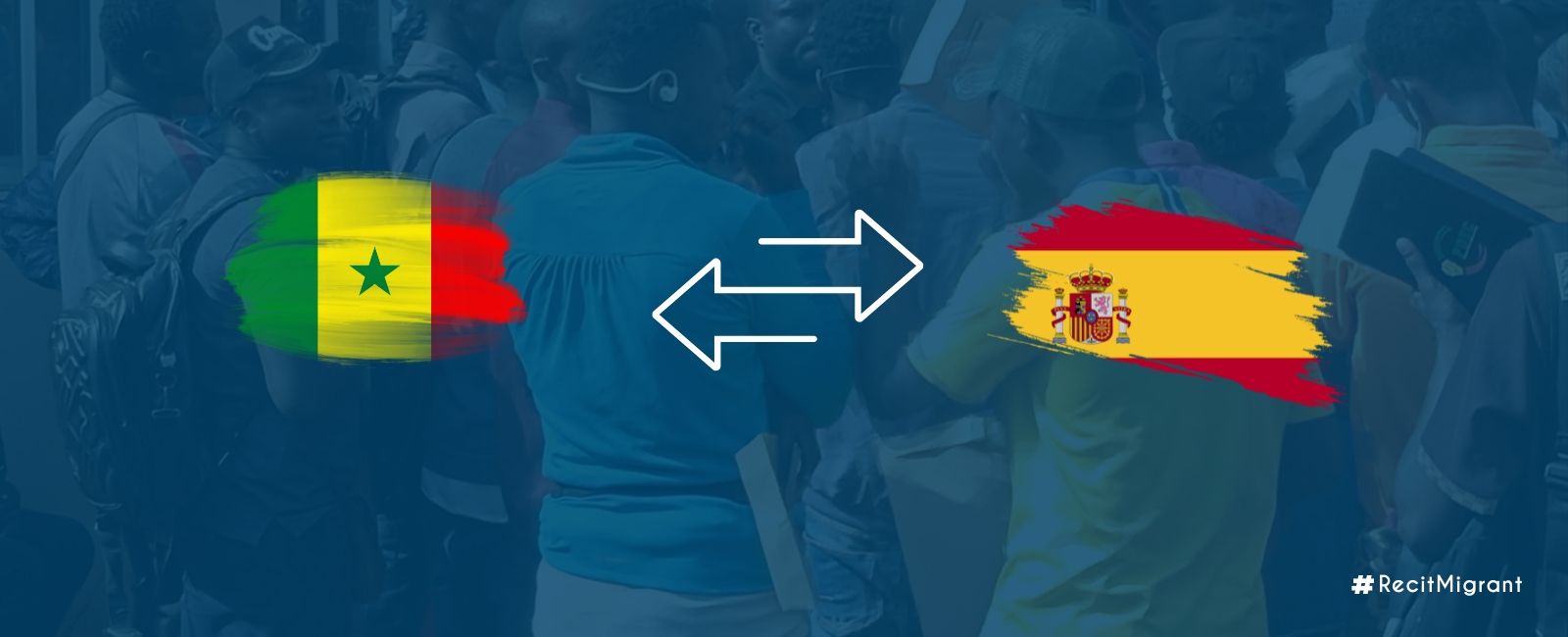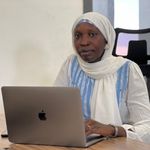

In a context of alarming unemployment and irregular emigration, Senegal is embracing circular migration by relying on agreements with countries such as Spain. This programme brings hope for some young people seeking a better future abroad. While the SenegaleseState strives to establish transparency in the selection processes, thousands of candidates are preparing to seize this promising opportunity.
Dressed in traditional African attire, a black-and-white chequered cotton fabric draping his slender frame, Youssou Faye, 25, is a symbol of hope and determination. In his quest for a better future, he is among young Senegalese who, with the fervour of youth, have flocked to the Assistance, orientation,and follow-up office (BAOS) in Dakar and Ziguinchor. The kickoff of physical application centres recently sparked great enthusiasm, and the announcement of a shift to an online platform only heightened the enthousiasm. Social media and videos have helped make this process even more vivid and real. Hours of waiting, animated conversations, and an atmosphere of anticipation fill the air amidst the excited crowd waiting to submit their applications . Such videosshared on social media bear witness to the collective quest for a better life.
A surge in applications amid a growing job crisis
Youssou Faye, a second-year student of the History Department at Cheikh Anta Diop University in Dakar, has a resolute outlook on his future. Although he admits not knowing all the nuances of life in Spain or the working conditions he may encounter, his desire to leave is undeniable. “I have already completed my online registration for circular migration,” he reveals, his voice filled with determination. His story is simple yet poignant: “My main motivation is to support my parents financially.” Unlike many, he has a plan; after his experience in agriculture in Spain, he aspires to return to Senegal to invest and help his community prosper.
For the year 2025, the Senegalese government has announced a project to send 370 agricultural workers to Spain. Following the opening of online applications between 5 and 7 February, a significant rush ensued: within just forty-eight hours, 10,000 applications flooded in, 5,000 from Dakar alone. The programme is open to all Senegalese aged 25 to 35, with no diploma requirements. This urgent need for jobs in a country where unemployment reached a bleak record of 20.3% in the third quarter of 2024, according to the National Agency for Statistics and Demography (ANSD), starkly illustrates the realities of the Senegalese job market.
Amadou Diop, another young man from the same university, shares this burning aspiration. Speaking at the university campus, he says: “I want to leave to seek a better life for my family. Spain offers me opportunities that are disappearing here.” His determination is contagious and reflects the desperate need for a bright future. As these young people prepare to change their lives, Mamadou Diouf, an older man, plays a key role in helping them register on the platform. “I register many young people, including women, for circular migration. The registration fee is only 1,000 FCFA,” he explains.
Women are not left behind
Migration is not just a male adventure; it is also the poignant story of courageous women facing the unknown for a better future. Fatoumata Diouf, with her ebony skin and radiant smile, embodies this bubbling hope. At 28, she dreams passionately: “I want to go to Spain to finally achieve financial stability. I obtained my degree in Management, but here, despair grips me, as outstretched hands searching for a job remain desperately empty.” For her, leaving her country has become an urgent necessity, an open door to the promise of a life where dreams are no longer met with bleak reality.
A few steps away, Bineta Diop, a woman of unwavering determination, walks the streets of Medina every morning with her handbag. Her relentless job search for domestic work meets a wall of rejection. Although she holds a Master’s degree in Spanish, her dream of prosperity has become a relentless battle. “The Spanish language is my weapon,” she declares, her eyes sparkling. She knows her language skills will open doors, but she struggles against a system that seems intent on ignoring her.
The Despair of young Senegalese
This frenzy of applications reflects the magnitude of the employment crisis in Senegal. The circular migration programme, which has existed for some time, is now seen as a lifeline for thousands of young people desperately seeking to escape the shadow of unemployment and build a new dream. The Secretary of State for Senegalese Abroad, Amadou Chérif Diouf, explains that since the first circular migration agreements in 2006, transparency in the selection process has often been questioned. “That is why we have taken measures to make the call for applications more open and accessible,” he assures.
Circular migration is not new in Senegal; it is part of a broader context of migration policies pursued by the country. Agreements similar to the one signed with Spain have emerged with countries such as Saudi Arabia, Kuwait, and France, all under the presidencies of political figures such as Abdoulaye Wade (2000-2012) and Macky Sall (2012-2024). Faced with the growing anxiety surrounding irregular emigration among its citizens, Senegal engaged since 2006 in a series of partnerships with nations such as Spain, France, and Italy. These efforts are part of a concerted approach to curb the scourge of irregular migration, which has led to countless tragedies, deaths, and disappearances among aspiring migrants at sea or in the desert. Thus, in 2021, Dakar concluded a significant pact with Madrid, establishing a circular migration programme that Senegalese authorities present as a viable alternative to informal emigration. Renewed in August 2024, during a landmark visit by Spanish Prime Minister Pedro Sanchez, this programme aims to “ensure safe, orderly, and regular migration,” as stated by the Spanish Ministry of Labour.
The terms of this agreement allow migrants to work in Spain for a maximum of nine months within a twelve-month period, depending on the results achieved. “This flexibility helps agricultural workers better manage their experience while effectively contributing to Spanish agriculture,” explained Amadou Chérif Diouf, the Secretary of State for Senegalese Abroad. This programme also offers promising financial prospects, as, according to Khadim Bamba Fall, the national coordinator of BAOS, migrants can return with an amount reaching up to nearly 6 million FCFA. This substantial sum is often seen as a stepping stone to new projects in Senegal, to the point that some migrants, enticed by the opportunities, consider not returning at all.
With the enthusiasm of various candidates, the Secretary of State also announced that in the current campaign, at least 370 returnees will be recruited to continue supporting this promising initiative. Beyond Spain, other similar initiatives are being developed with Belgium and Japan, paving the way for even larger cohorts of migrants. However, there is still one imperative: ‘To guarantee the success of these programmes, the selected candidates will have to be assured of their return; otherwise, the very notion of circular migration could be called into question’, warned the Secretary of State. The ultimate aim is to rival Morocco, which manages to send almost 10,000 agricultural workers to Spain every year. The statistics bear witness to the impact of these programmes: in 2024, the official return rate of Senegalese from circular migration was 65%, a significant change compared to just 40% in 2019.
These figures show not only the growing commitment of Senegalese to return to their country with skills and resources, but also the determination of the authorities to ensure that this migration is beneficial both for the workers and for their homeland.
In its search for lasting solutions, the Senegalese government has signed similar agreements with other countries in the Gulf and in Europe to control this migratory phenomenon and avoid the tragedies of irregular emigration.The recent commitments with Spain illustrate a step towards ‘safe, orderly and regular’ migratory movements, according to the Spanish Ministry of Labour. Amadou, a dreamer with clear ambitions, hopes to transcend borders and return with innovative projects for his community. Through this programme, the young migrants also hope to return home with substantial sums of money, close to 6 million CFA francs, while many are planning not to leave again, but to get involved in local development.
A glimpse of a better future.
Recently Published
Subscribe to our newsletter!
Quick Links


